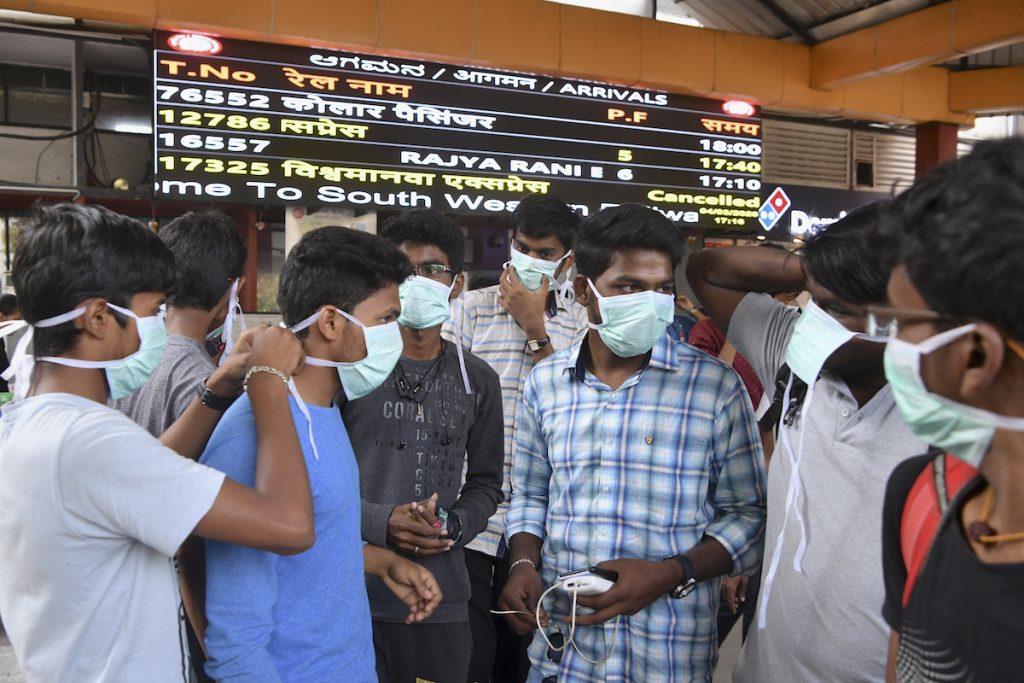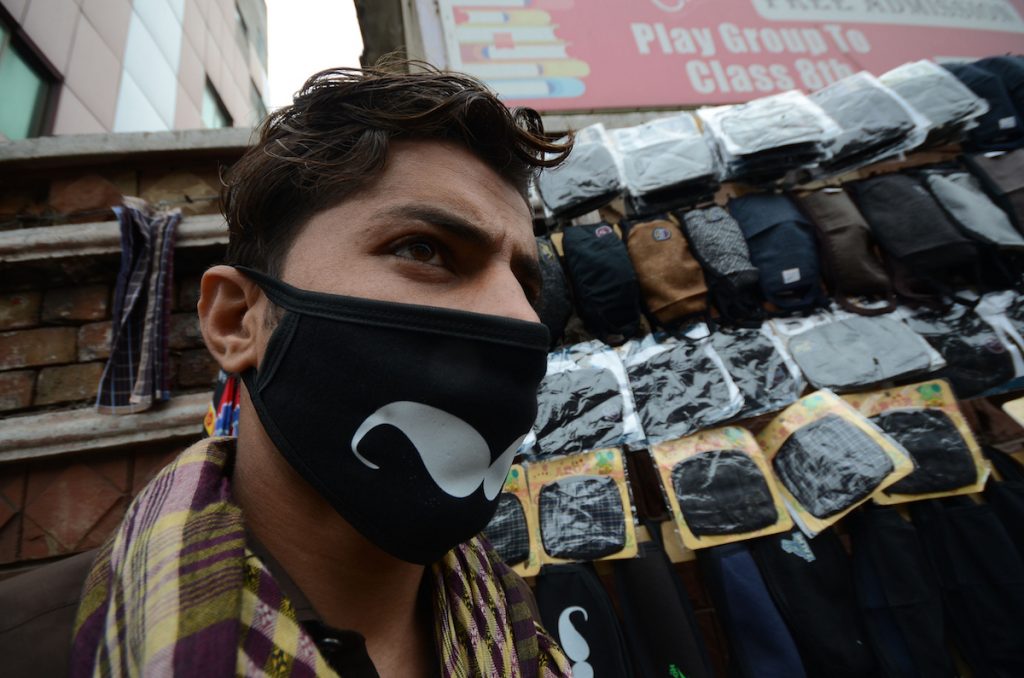India has ramped up the screening of travelers to keep the coronavirus at bay, but a flurry of new cases has experts warning that it may be hard to contain a spread in densely populated South Asia with its generally poor medical infrastructure.
India, Pakistan and Bangladesh are home to some 1.7 billion people, or more than a fifth of the world’s population, but their over-stretched health systems could struggle to handle the type of intensive care required for coronavirus patients.
On top of that, a prevalence of existing health problems such as diabetes could spell trouble while the sort of sweeping restrictions China has imposed to stifle the virus would be hugely difficult in South Asia’s more unruly cities.
“The way Indian society is structured, the kind of lockdown that many countries including China and Japan have instituted, is pretty much impossible even under good circumstances,” said Vivekanand Jha, executive director of the George Institute for Public Health, in New Delhi.
India’s total confirmed coronavirus rose to 29 on March 4, from six early this week.
The coronavirus, which emerged in China late last year, has infected more than 95,000 people globally, and killed more than 3,200, most of them in China.
Some health experts fear that even with the recent spike in cases, India’s actual tally could be much bigger.
“There is a strong possibility that the number of cases in India is much higher than what has been detected,” Arunkumar G., director of the Manipal Institute of Virology, said, citing a virus incubation of up to two weeks.
Fears were fanned this week when India’s health minister disclosed that 16 foreign tourists who have tested positive had been touring since mid-February.
Last week, U.S. intelligence sources told Reuters that India’s available countermeasures and the potential for the virus to spread its dense population was a focus of serious concern.

‘All initiatives’
India’s government says it has screened more than one million travelers, boosted its testing capabilities and set up isolation wards in all major cities with international airports.
But 450 million of India’s 1.3 billion people are estimated to be migrants, with vast numbers packing its rail and road systems daily meaning controlling any spread would be a huge challenge.
India’s high number of diabetics — 77 million — and high rates of problems like kidney disease could lead to higher morbidity, or protracted treatment, experts said.
“One particular risk of India is the co-existence of other non-communicable disease epidemics,” Dr Rajib Dasgupta, who is a professor of community health at the Jawaharlal Nehru University in New Delhi.
Prime Minister Narendra Modi’s government says it is confident of its ability to arrest the spread of the virus.
“Coronavirus is a challenge, but the government of India has taken all initiatives to ensure that it is stopped,” said D.V. Sadananda Gowda, minister of chemicals, who oversees the pharmaceuticals sector.
Neighboring Pakistan has found five coronavirus cases. A top health official was gloomy about the prospects of tackling a major outbreak.
“We don’t have human resources, we don’t have the required inventory, we don’t have a capacity to cope with a big emergency with the given resources,” Shahid Malik, secretary general of the Pakistan Medical Association, told Reuters.

Bangladesh has not confirmed any cases of the coronavirus, but five Bangladeshi workers have tested positive in Singapore.
Bangladesh’s health ministry said more than 300,000 people have been screened at airports and other border entry points.
But one passenger was not impressed by what he considered lax screening upon arrival in the capital, Dhaka.
“Many of us could skip the screening. Just imagine what would happen if someone infected with the virus enters. It’ll be a total disaster,” Farid Yamin, a Bangladeshi working in Singapore, told Reuters.






